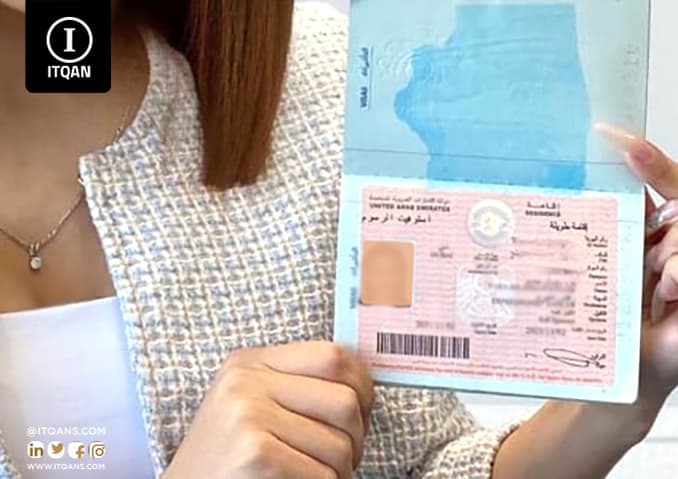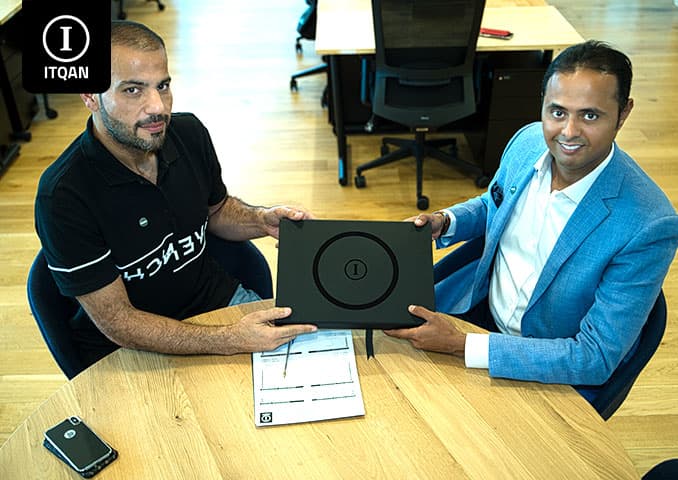With the rapid economic growth and diverse investment opportunities offered by the UAE, the country has become a preferred destination for investors and businessmen from all over the world, including Saudi Arabia. Opening a company in the UAE is a strategic step for Saudi investors who wish to benefit from the favorable and flexible business environment provided by the UAE. One of the essential steps in this regard is obtaining a commercial registration in the UAE for Saudis, which is the official document that certifies the company’s activity and manages its business operations legally.
A commercial registration in the UAE is the document that grants companies the right to practice their commercial activities, and is one of the basic requirements for establishing any type of business in the country. All companies operating in the UAE are required to have a commercial registration, whether they are a local company, a branch of an international company, or even a company in a free zone. This registration reflects the company’s commitment to local laws and helps in obtaining the licenses and permits required to practice commercial activity.
In this article, we will discuss the steps and procedures required to obtain a commercial registration in the UAE for Saudi investors, including registration requirements, required documents, and the benefits of obtaining this registration. We will also discuss the challenges that companies may face and how to overcome them, which will help Saudi investors take their first steps with confidence and clarity.

جدول المحتوى
ToggleBasic steps to obtain a commercial register in the Emirates
Obtaining a commercial registration in the UAE is an essential step to establish a company and start doing business. Here are the basic steps to follow to obtain a commercial registration:
- Determine the type of company and business activity: Determine the type of company you wish to establish (such as a limited liability company, a private joint-stock company, etc.).
Choose the business activity that the company will carry out, as the activity must match the activities permitted according to the license. - Choosing a trade name: Choose a trade name that reflects the company’s activity and is compliant with local laws.
Make sure the name is not already reserved or registered for another company. You can check the availability of the name through the website of the Department of Economic Development or the competent authority in the emirate. - Business plan: A document that outlines a company’s goals and strategies.
- Apply for a license: Apply for a commercial license from the Department of Economic Development or the competent authority in the emirate in which you wish to establish the company.
Additional documents may be required depending on the type of company and business activity. - Open a business bank account: Open a business bank account for the company at a local bank. You will need to provide company documents, including the commercial registration, when opening the account.
- Obtaining necessary approvals and permits: Depending on the type of business, you may need to obtain additional permits from other regulatory bodies (such as health or educational licenses).
- Complete the registration procedures: After obtaining the license, submit all the required documents to the Department of Economic Development or the competent authority to issue the commercial register.
Pay the required fees to register the company and receive the commercial register. - Registering the company with the Chamber of Commerce: You may need to register the company with the local Chamber of Commerce or the competent authority in the emirate to obtain membership and facilitate interaction with other business entities.
- Obtaining additional visas and licenses: Apply for work and residence visas for investors and employees.
You may need to obtain additional licenses depending on the company’s activity and location. - Compliance with local legislation: Ensure compliance with all local laws and regulations regarding taxes, social insurance, and other business procedures.
The importance of commercial registration in Dubai
In the growing and diverse business world, the commercial register in Dubai is one of the fundamental pillars for the successful establishment and operation of any company. The commercial register is an official legal document that records the details of the company and proves its legitimacy as an approved legal entity. This document provides a legal framework that regulates business relations, ensures the protection of intellectual property rights, and enhances the credibility of the company in the market. In this context, the commercial register emerges as a vital tool for small and large companies alike, as it contributes to facilitating business operations, from registering activities and documenting transactions to enhancing trust between investors and customers. In this article, we will discuss the importance of the commercial register and how it affects the success and growth of businesses. The importance of the commercial register:
- Legal Documentation: The commercial register is a legal document that recognizes the company as a legal entity. Registration proves that the company is legally established and complies with local laws.
- Compliance with regulations: A commercial registration ensures that the company is in compliance with local laws and regulations for establishing and operating a business. This can help avoid legal penalties and regulatory challenges.
- Trademark Protection: Registration in the commercial register protects the company name and trademark from illegal use by third parties. This provides protection for intellectual property rights.
- Ability to conduct business transactions: A commercial register is necessary to conduct formal business transactions, such as opening bank accounts, signing contracts, and obtaining business licenses and permits.
- Enhance trust and credibility: Having a commercial record enhances the credibility of the company with customers and investors. It proves that the company operates within a legal framework, which enhances confidence in its continuity and quality.
- Access to finance: Registered companies can apply for loans and financing from banks and financial institutions. The commercial register provides a legal basis that proves the validity of the company’s existence and its ability to meet financial obligations.
- Marketing and Expansion: Having a commercial register enables companies to participate in public tenders and bids, which helps them expand and increase job opportunities. They can also establish business relationships with other local and international companies.
- Tax Reports: Registered companies are required to submit periodic tax reports. Having a commercial register helps organize and monitor the company’s tax obligations and compliance with tax regulations.
- Legal Procedures: In the event of legal disputes, the commercial register is considered evidence of the legal legitimacy of the company. It can be used to settle disputes and ensure the rights of the parties involved.
Documents required to obtain a commercial register
To obtain a commercial registration in the UAE , a set of basic documents must be submitted to the relevant government authorities, such as the Department of Economic Development in the relevant emirate. Here is a list of the required documents:
- Passports: Copies of passports of all investors and directors.
- Headshots: Recent headshots of investors and directors, usually with a white background.
- Office Lease Agreement: A notarized lease agreement for the office or business location, which must be registered in accordance with local laws.
- Certificate of Good Conduct: A certificate of good conduct from the local authorities for investors and managers. It may be required specifically for some business activities.
- Articles of Association and Memorandum of Association: Legal documents that define the structure, objectives, and rules of management of a company. Typically include the articles of association and the bylaws.
- Business Plan Report: A detailed business plan that outlines business objectives, business strategies, and market analysis.
- Regulatory approval: Some businesses may require special approvals from relevant regulatory authorities (such as health, education, or environmental authorities).
- Emirates ID Document: For investors and managers residing in the UAE, it may be necessary to provide a copy of the Emirates ID.
- Other Legal Documents: These documents may include specific agreements or understandings, such as partnership or distribution agreements, if available.
- Copy of previous trade license (if applicable): If the investor has previously established a company in the UAE and wishes to modify the activity or structure, a copy of the previous trade license may be required.
- Form of incorporation: The incorporation application form completed and signed by all shareholders or directors.
- Insurance Documents: You may need to provide proof of insurance for the company and employees, including health insurance and social insurance, as required by the relevant authorities.
- Special Permits: If the company operates in a sector that requires special licenses, such as healthcare or education, the necessary documents must be submitted to obtain those permits.
Cost of obtaining a commercial register in the Emirates
The cost of obtaining a commercial registration in the UAE depends on a number of factors, including the type of business activity, the size of the company, and the geographical location within the UAE. Generally, the basic costs include the following items:
- Registration Fees: These fees include the cost of filing an application for registration in the commercial register and registering the company name. Fees may vary depending on the type of company and where the registration is taking place.
- Licensing Fees: Includes the costs of obtaining the business license required to operate the business. The license may require some amendments or updates over time.
- Rental Fees: Companies are required to provide a lease agreement for the business premises, which must be notarized and certified. Rental costs depend on the location and size of the office or store.
- Insurance Fees: Companies may need to pay insurance fees, which include business insurance, employee health insurance, and any other insurances required by local authorities.
- Legal Consultation Fees: In some cases, you may need to hire a legal advisor or company that specializes in company formation, which may require paying additional fees for advice and assistance in preparing documents.
- Additional Approval Costs: Some businesses may require special approvals or licenses from additional regulatory bodies, which may increase overall costs.
- Document preparation costs: These costs include preparing and processing the documents required for registration, such as the articles of incorporation and bylaws, which may require paying fees to notaries or lawyers.
- Management fees: These include administrative fees related to incorporation procedures, such as opening a bank account for the company and registering with the Chambers of Commerce.
In conclusion, obtaining a commercial registration in the UAE is a vital step for the success of any commercial project in the country, especially for Saudi investors who seek to benefit from the many opportunities provided by the business environment in the UAE. The UAE is considered one of the most prominent investment destinations thanks to its advanced infrastructure, encouraging trade policies, and advanced financial system. Registering a commercial registration is not just a legal step, but also a gateway to opening doors of opportunity and growth.
By following the steps and procedures outlined in this article, Saudi investors can facilitate the process of establishing their companies in the UAE and ensure compliance with all local laws and regulations. It is essential for investors to have a comprehensive understanding of the requirements and procedures to ensure that their business starts smoothly and successfully.
Working with local consultants or specialized consulting firms such as Itqan can provide valuable support and reduce the complexity of the registration process. These professionals can provide precise guidance, help in gathering the necessary documents, and ensure that all legal requirements are met.
The most important frequently asked questions about a commercial register in the Emirates for Saudis
What is a commercial register and why is it important?
A commercial registration is a legal document issued by government authorities that proves that a company is registered as an official business. It is important because it provides legal recognition for a company and allows it to legally conduct business activities in the UAE.
Do Saudi investors have to be residents of the UAE to open a commercial register?
No, Saudi investors do not have to be residents of the UAE. They can open a company with a local agent or an Emirati partner.
Can a company be opened in a free zone without a commercial register?
No, even in free zones, companies must obtain a commercial registration to be legally registered and enjoy the benefits allocated to those zones.
How can I amend or renew my commercial register?
The commercial register can be amended or renewed by submitting a request to the competent government authority, along with the necessary documents such as proof of address or change of activity.
Are there any restrictions on the businesses that can be registered?
Yes, there are some activities that require special licenses or additional permits. Businesses must comply with the laws and regulations specific to the specific business activity.

















